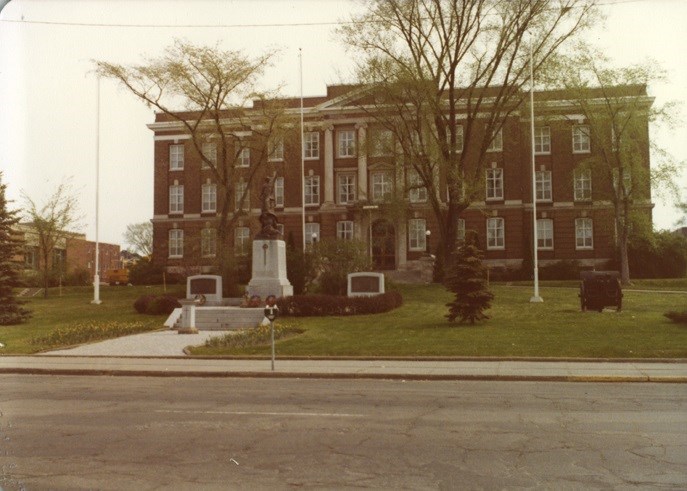From the archives of the Sault Ste. Marie Public Library:
Uriah McFadden was born in 1870 in Perth County. While he grew up largely in Huron County, he moved to Sault Ste. Marie as a young man, pursuing a career in law.
His older brother, Moses McFadden, was already in Sault Ste. Marie, part of the legal firm of McFadden & Farwell. Uriah joined their firm as a student, and then continued working there after being called to the bar. After Farwell’s retirement, the brothers continued to run their own firm, McFadden & McFadden, working together for several years.
That firm was dissolved when Uriah left for Gowganda, near Timiskaming, for over a year. When he returned to Sault Ste. Marie, Uriah opened his own office in the Barnes Block, and then took on E. V. McMillan as a law partner. That firm would go through various changes as partners joined and left, eventually becoming what is now known as Wishart Law Firm
Uriah McFadden made a name for himself as a criminal lawyer, and the Sault Daily Star declared him to be “one of the leading criminal lawyers of the Province,” with headlines declaring how many “necks” he had saved.
Arguably, his most famous case was that of Angelina Napolitano – the woman who murdered her abusive husband was sentenced to hang, but whose sentence was commuted after her case received international attention.
However, hers was far from the only notorious case he took on. By 1913, the Sault Daily Star also noted that since the Napolitano case, Uriah McFadden had “successfully defended nearly every person charged with murder in the District of Algoma, either obtaining an acquittal or having the charge reduced to manslaughter.”
Uriah McFadden was known for being an engaging speaker, and according to the Sault Daily Star, people recalled that he would “[pace] up and down Bay Street early in the morning of a day on which he was to address the jury, going over his address to make sure of its effectiveness.”
While both the McFadden brothers worked as lawyers and eventually went on to become judges, they didn’t just work in the legal field: they also made a splash in the field of news media. Moses McFadden owned the Sault Courier (later renamed the Sault Star) back when it was a weekly publication in the late 1890’s; Uriah was an editor with the paper, as well as an advertising solicitor, reporter. Uriah recalled that he was the one who called the paper the “Star,” renaming it from its earlier title of the Courier. James Curran purchased the operation from the McFadden brothers in 1901.
Uriah McFadden was also involved with healthcare, helping to fundraise for the Royal Victoria Hospital and serving on the board for the Plummer Hospital. He was also involved in local education, sitting on the Public School Board for over a decade. McFadden Public School was named after him – an honour bestowed upon him while he was still living.
Uriah McFadden was appointed county judge in Chatham in the early 1930s. However, while he may have left the Sault behind, he continued to advocate for the city, praising its growth and potential.
He passed away in 1943; having entered hospital for surgery, he was making an excellent recovery, and then suffered a heart seizure that ultimately killed him. He was buried in Sault Ste. Marie, in Greenwood Cemetery.
Each week, the Sault Ste. Marie Public Library and its Archives provides SooToday readers with a glimpse of the city’s past.
Find out more of what the Public Library has to offer at www.ssmpl.ca and look for more Remember This? columns here
